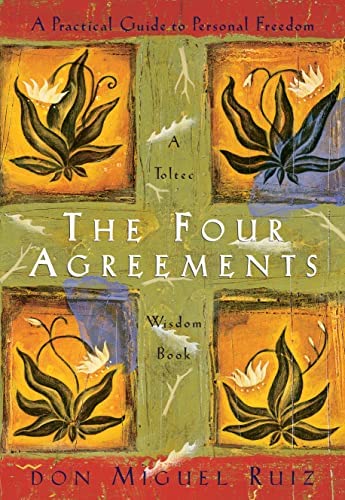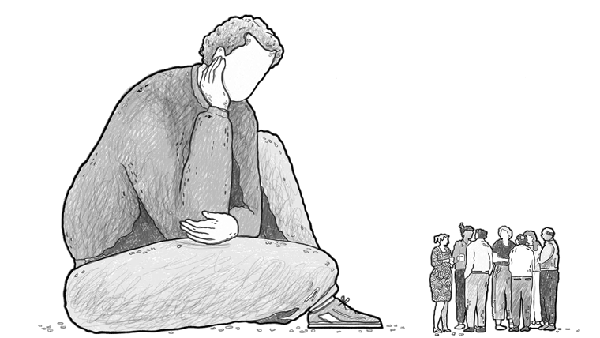The Four Agreements
22 January 2023

Hi, The Investor’s Podcast Network Community!
We’re already nearly a month into the new year. Hopefully, your 2023 goals and resolutions are off to a nice start.
If not, there’s no need to fret. As author Don Miguel Ruiz will show us, we can always start anew 🌅
That’s a core message in The Four Agreements, which outlines four simple goals to help gain more freedom over our lives — we’ll break them down in just four minutes to read in a special weekend edition of We Study Markets.
Get smarter about valuing businesses in just a few minutes each week.
Get the weekly email that makes understanding intrinsic value
easy and enjoyable, for free.
“Your acts of kindness are iridescent wings of divine love, which linger and continue to uplight others long after your sharing.”
— Rumi
Beating the market doesn’t have to be a mystery.
Using TIP Finance, you can access our signature intrinsic value calculator to quickly value stocks like Buffett does, track your portfolio, see what legend investors are invested in, use momentum and price notifications to time your investments better, and much more.
Get started in 2023 using the best investment tools available.
Give it a try for free today, or use the discount code: TIP2023 at checkout for 23% off of our premium service.
Don Miguel Ruiz’s classic little book, The Four Agreements, was originally published in 1997 as a guide to proper conduct, spiritual freedom, and a life with fewer limitations.
Its simplistic power is striking: Four short agreements, simple words that are easy to talk about yet much harder to practice. But they are wise principles worth striving for.
The Four Agreements are:
- Be impeccable with your word
- Don’t take anything personally
- Don’t make assumptions
- Always do your best
It has sold over 12 million copies in the U.S. and has been translated into about 50 languages.
Be Impeccable With Your Word
The first agreement is about speaking with integrity and saying only what you mean. It means avoiding using words to speak against yourself or gossip about others.
“Use the power of your word in the direction of truth and love,” he writes.
What does this mean to you? The spoken word, one of humanity’s great inventions, can help us love, heal, and move forward with grace.
Thanks to words, we can share with others how we feel, how much we love them, and the future we’re working toward. The first agreement is about taking great care of your word and what you say to others.
“Use the word to share your love,” Miguel Ruiz writes.
Don’t Take Anything Personally
Miguel Ruiz notes that we’re often dreaming, creating stories in our heads that aren’t necessarily true. When others talk about you, they are talking about a secondary character who represents you, an image they create for you.
When we realize this fact, we are on the road to avoiding many upsets in our lives. Miguel Ruiz argues that when we refuse to take things personally, freedom comes our way because others’ words and actions are a reflection of them, not you.
“Nothing others do is because of you,” Miguel Ruiz writes. “What others say and do is a projection of their own reality, their own dream. When you are immune to the opinions and actions of others, you won’t be the victim of needless suffering.”
Don’t Make Assumptions
By not taking things personally and by not making assumptions, we can avoid a lot of drama and sadness.
“Real love,” he writes, “is accepting other people the way they are, without trying to change them.”
Making assumptions leads to fights, difficulty, and misunderstanding. When we make assumptions, sometimes we are right. But other times, when we are wrong, the outcome tends to be negative or less than ideal.
Asking questions, being clear (impeccable with our words), and listening well help avoid suffering from making assumptions. The process requires courage and diligence, but the benefits are profound.
“Find the courage to ask questions and to express what you really want,” he adds. “Communicate with others as clearly as you can to avoid misunderstanding, sadness, and drama. With just this one agreement, you can completely transform your life.”
Always Do Your Best
The fourth and final agreement centers on the idea that our “best” is ever-evolving. Miguel Ruiz underscores the idea that circumstances shouldn’t affect the effort we give.
Doing our best, he writes, is taking action because you love it, not because you are expecting a reward. Whether our best is what we want or less than that, this agreement lies in the effort, not the outcome.
“Your best is going to change from moment to moment; it will be difficult when you are healthy as opposed to sick,” he writes.
“Under any circumstance, simply do your best, and you will avoid self-judgment, self-abuse, and regret.”
Takeaways
These four agreements have entered my (Matthew’s) frame of mind throughout the past year or so, yet I haven’t always stuck to them.
As simple as they are, they’re extremely difficult to put to practice every single day.
Miguel Ruiz ends the book by noting that we can’t expect to always be impeccable with our word. We won’t always be able to not take things personally. And we will naturally make assumptions at times.
But we can certainly do our best without feeling guilty if we don’t keep the four agreements at every moment.
Miguel Ruiz suggests beginning some days with a short passage in your head or journal:
“Today, I will be impeccable with my word, I will not take things personally, I will not make any assumptions, and I am going to do my best.”
He writes, “Today is the beginning of a new dream.”
Dive deeper
You can read the bestselling book, The Four Agreements, here. It’s a concise, easy read and spiritual guide worth revisiting at your choosing.
For similar lifestyle insights, philosophy, and grounded approaches to investing, check out our Richer, Wiser, Happier podcast.
That’s it for today on We Study Markets!
See you later!
If you enjoyed the newsletter, keep an eye on your inbox for them on weekdays around 6pm EST, and if you have any feedback or topics you’d like us to discuss, simply respond to this email.












